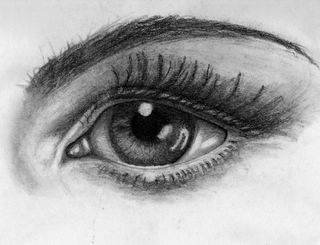 I quit my job and went back to school to get my degree in psychology – of course. The class that did more to open my eyes to the human condition than any other single thing in my life was social psychology (take a breath!). It’s been around for a long time, but I had never been exposed to it before. I learned some very interesting things. I knew that I hadn’t learned yet what I was trying to learn. I didn’t know what it was – it was just out of reach.
I quit my job and went back to school to get my degree in psychology – of course. The class that did more to open my eyes to the human condition than any other single thing in my life was social psychology (take a breath!). It’s been around for a long time, but I had never been exposed to it before. I learned some very interesting things. I knew that I hadn’t learned yet what I was trying to learn. I didn’t know what it was – it was just out of reach.Then I started reading the blogs of some “skeptics”. They are college professors who are atheists, and they are really mean. I still won’t link to them because I am really afraid of them. They really are mean. But they did make some good points.

While my disbelief in the three Abrahamic religions comes from the people among their flocks, these atheists’ disbelief stems from science. They talk a lot about evolution and how it proves religion wrong. I don’t know, I think evolution proves that the creation story is wrong, but how does it prove all spirituality wrong, as they assert?
I took a pseudoscience class this summer, and learned how to tell the difference between using evidence to understand the natural world and knowing truth through the metaphysical world. I learned what psychological factors account for superstitious belief and how credulity lends itself to strange ideas. I also learned where the duality we feel comes from. Michael Shermer has written some books on why people believe weird things, and one of the topics he writes about is abduction stories and what psychological/physiological factors contribute to popular cultural myths.

One of the physiological factors he discusses is sleep paralysis, a condition I have been inflicted with since I was about 10 years old (about the time my body started to change). It can be, and often is, an extremely terrifying experience. My mother spoke of having similar experiences, but when I discussed it with other people, they thought I was crazy. But, I’m not.
The sensations tend to be the same no matter who experiences it. The most common sensations are a feeling that someone/something is sitting on your chest and you can’t move; sensations of floating out of your body/house; very lucid dreams that often are quite nightmarish; and a feeling of being completely paralyzed that requires a great deal of focus and determination to overcome and often leads to more lucid dreaming.

Throughout history there have been outbreaks of human abduction myths. In the beginning, the most common abductors were fairies, and trolls. Then demons and witches became the abductors, fueling the witch trials. Then extraterrestrial beings were the culprits. The abductors always seem to meet the mythology of the times. The lucid dreams that take place during sleep paralysis feel real. When you are having one, you don’t know you are dreaming. Often, you dream that you wake up, and then something horrible happens. You can’t move, so you can’t protect yourself. Or you won’t be able to move, so you try with everything you have to move, and you do – but it isn’t real, it is part of the dream. Vampires and monsters used to come and get me. After I was attacked, It was men coming to kill me.

My neighbor has a book that says the experiences aren’t bad. If you can become lucid enough during a dream, you can control you feelings, and have meaningful “out of body” experiences. I went with the idea. I would feel it coming on and float out of my body. It never lasted very long, though, and I was never truly convinced that I had actually left my body. It seemed possible, though. It is a definite detachment of the spirit and body. At least, it feels that way. It helped, however. I no longer feel the intense fear when I “feel one coming on.”

While most people don’t experience sleep paralysis, they can experience out of body sensations through normal dreaming. In dreams people often see themselves from the observer’s point of view. There are also stress situations when people feel they are seeing themselves from above or behind their body. Research has demonstrated how virtual reality induces out of body experiences. When people have these experiences, they don’t question them because humans have believed for thousands of years that there is a soul that survives death.
Philosophers and religious leaders have pondered the idea. The question is, what is consciousness? The fact that consciousness is so hard to explain feeds directly into the human notion of duality. Today, science is getting very close to explaining how the brain creates a sense of consciousness.

Humans have believed from the beginning that we are different from all other animals in respect to consciousness, but scientific research has shown that even pigeons demonstrate self awareness. It really doesn’t seem like that big a leap to believe that mind is a product of the brain. There is so much more evidence to support the science of mind is matter than the contention that a separate soul exists.
My grandmother is a perfect example of this. When she suffered brain damage, it was as if she had become a different person. Many people have experienced this with their loved ones who are afflicted with alzheimer’s disease. The phenomenon has also been studied at length with people who suffer brain injuries. It begs the question, if we have a soul that transcends body, then how does physical disease alter it?
I have come to believe that it’s easier to see the mind brain connection than the duality I once felt. I don’t remember anything before I was about 1 to 2 years old I don’t remember living any other lives, and I can’t fathom living forever. Heck, I can’t fathom forever.

Without duality, what is god for? So, I guess I’m back to atheism, again. But if it seems that obvious to me, why do so many people choose not to see it? Why are so many people troubled by my non-belief? They would ask, as my neighbor once did, "without god, how can you know what is moral?" I struggled with it then, but the answer is so obvious to me now.







0 comments:
Post a Comment